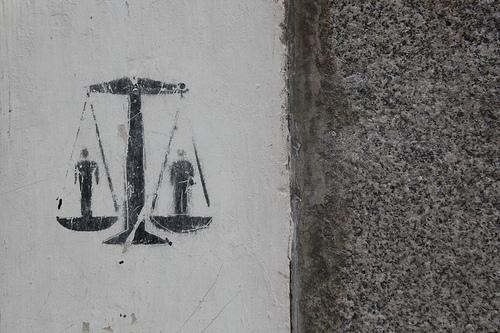Special Education Law in Pennsylvania
After attending the yearly Council of Parent Attorneys and Advocates (COPAA) conference recently, it hit me; Pennsylvania leads the nation in special education law. Lawyers around the country rely on precedent set in Pennsylvania to advocate for their clients. Lawyers from as far away as Hawaii were thrilled to come to Philadelphia to discuss special education issues in the place where some of the biggest special ed decisions have been handed down.
What is Pennsylvania doing right? Among other things:
- The Hearing Officers
- Neutral Verdicts
- Great Website
- Your House is the Courthouse
- The Lawyers
The Hearing Officers:
In Pennsylvania there are about six Impartial Hearing Officers (IHOs) charged with presiding over the States special education matters at any one time. The IHOs are physically positioned all around the state, but based on a random lottery (I think it’s random) an IHO from Western PA can be assigned to a matter in Philadelphia or one of the surrounding suburbs. This rotating wheel – and the fact that IHOs travel to schools outside of their home base – ensures that Districts will be exposed to different IHOs and helps to promote balanced rulings throughout the state.
However, what really sets the IHOs in PA apart from those in other states (I still love you New Jersey and Florida) is the fact that these six – or so – individuals are highly qualified in special education matters. In other states, Administrative Law Judges (ALJs) preside over a variety of different matters; most of which are highly complex. ALJs are required to have a very broad knowledge of many – unrelated – areas of law. This is a great challenge, but the ALJs do an excellent job of finding facts and applying the facts to the law.
In PA, the IHOs are special ed experts. They hear one type of case … over and over and over and over again. While the facts change and the issues are broad, their caseloads all fall under the rubric of 504 and/or IDEA. The IHOs in PA have an in depth understanding of the law and the related issues which gives them the ability to analyze and rule on complicated and highly micro questions.
Neutral Verdicts:
I wouldn’t categorize Pennsylvania as overly Parent friendly nor would I say the special education decisions are overly District friendly.
I think the battle of Parent vs. School is a relatively fair fight in Pennsylvania (for the sake of discussion I am not taking into account the imbalance of resources between a typical school district and a typical parent).
Great Website:

The Pennsylvania Office for Dispute Resolution web site is extremely easy to navigate, well maintained and updated often. New Hearing Officer Decisions are posted on the site and the decisions are easily searchable.
There is a fantastic video library that has enactments of due process hearings. A newbie can get a clear picture of the dynamics and procedures of a due process hearing by watching these videos.
There is a great glossary of special education terms and acronyms.
The circus travels to you:
In New Jersey, for example, there are three physical locations where all due process hearings are held. Depending where in New Jersey the school district (where the complaint arose) is located, hearings will be held in either Atlantic City, Trenton or Newark.
In Pennsylvania, however, the IHOs come to you (the school district – usually an administration building). Pennsylvania’s way of conducting hearings has proven effective and convenient. This convenience comes at the cost of inconvenience to IHOs that travel 4 hours or more (in some circumstances) to get to a hearing location, but it may be more comforting for Parents and Teachers to be close to home and in a familiar setting rather than a unfamiliar court house an hour or so away.
Other states (Florida) take it to the next level and have Judges appear via video in high tech hearing rooms located in each county. To some this raises the question of whether a Judge can make credibility determinations – and other determinations – from a distance, but as technology continues to improve I think we can expect to see more simulcasted hearings throughout the country. Florida is a leader in this area, but Pennsylvania is not far behind. Several tech-forward options are being offered in PA, such as a digital exhibit dropbox hosted by sharefile.com. More advancements to come I am sure.
The Lawyers:
The Special Education Bar is Pennsylvania is an accomplished group. There are fine attorneys representing both school districts and parents. Many – if not most – of the attorneys that practice special education law in Pennsylvania do so as their sole practice area and as a result become well versed at assessing cases. A knowledgeable lawyer can appropriately calculate their client’s exposure and advise them when to fight and when to settle. When both parents and schools are represented by savvy lawyers the cases that should settle do settle and the cases that do ultimately wind up in a hearing are there for a good reason.
So …
While it is generally in everyone’s best interest to resolve issues outside of formal litigation – if that is not possible – the special education dispute resolution system in Pennsylvania gives Parents of children with special needs a solid forum for advocating for what they believe is appropriate.
If you feel that your school district may have been remiss in their delivery of a free appropriate public education (FAPE) to your child, you might want to consider consulting with an attorney that focuses their practice on issues in education law.
Remember, while nothing on this site or in this post should be considered legal advice, there may be timelines in which you have to file a complaint (statute of limitations). Be mindful of these potential timelines and deadlines.


